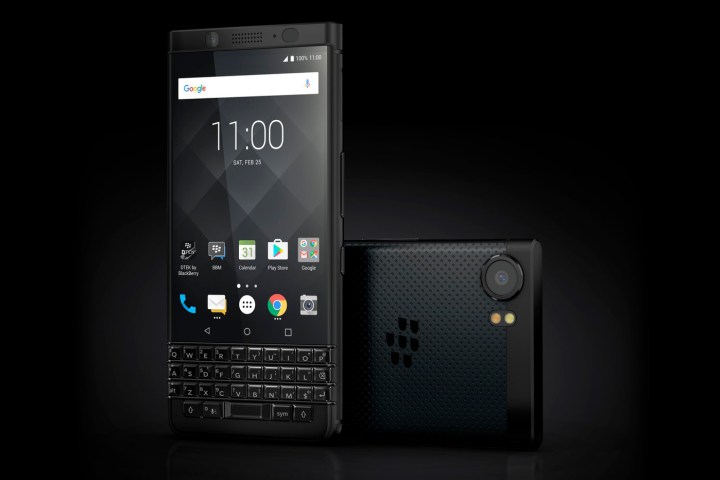
The phone just wasn’t quite as snappy as we would have liked, especially compared to the best Android currently offers, like the Google Pixel and HTC U11. The two-tone combination of light silver and glossy black plastic also feels a little dated.
Well, it seems BlackBerry heard the complaints. The company has announced it is launching a special edition of the KeyOne that adds more memory and storage to the package, as well as a refined color scheme. It’s called the KeyOne Limited Edition Black, appropriately enough, and it’s coming out August 8. Only problem? It’s exclusive to India, at least for the time being.
Congratulations to Optiemus Infracom on the launch of #BlackBerry KEYone LIMITED EDITION BLACK in India! pic.twitter.com/pVvJgvemmU
— BlackBerry (@BlackBerry) August 1, 2017
The Limited Edition Black adds another gigabyte of RAM to the KeyOne, increasing the total to 4GB. While it would have been more beneficial if BlackBerry upgraded the processor instead of the RAM, the extra gigabyte will help users running multiple apps at the same time.
This version of BlackBerry’s flagship also doubles the internal storage from 32GB to 64GB. Although the KeyOne features a MicroSD slot for optional expansion, phone makers are steadily increasing the amount of media and apps their devices can store out of the box, which is a welcome change.
Then, of course, there’s that all-new, all-black design. The Limited Edition trades the silver accents at the top of the KeyOne for matte black, and the result is much sleeker. Even the camera lens has been stripped of its chrome trim. There isn’t a hint of bright metal to be found anywhere on the exterior, making for an attractive aesthetic.
Unfortunately, Blackberry isn’t offering this more compelling variant of the KeyOne outside India. We’ve reached out to the company to find out if that stance could change down the line.
That’s a bummer, considering users all around the world could really benefit from these improvements. While the KeyOne is primarily manufactured by TCL, the Limited Edition Black is built by Optiemus Infracom. TCL ran into some quality-control issues with the initial run of KeyOne devices, so let’s hope Optiemus’ more expensive version doesn’t fall victim to the same troubles. While the KeyOne typically goes for $550 unlocked in the States, this model will retail for the equivalent of $620, or 39,990 rupees, exclusively through Amazon.
Editors' Recommendations
- BlackBerry trailer depicts the rise and fall of the iconic phone
- BlackBerry’s latest revival attempt crashes before launch
- The BlackBerry Key2 shows why software updates really matter
- Classic BlackBerries are finally losing suppport as company shuts down services
- BlackBerry rises from the grave: New 5G phone with a keyboard coming in 2021


